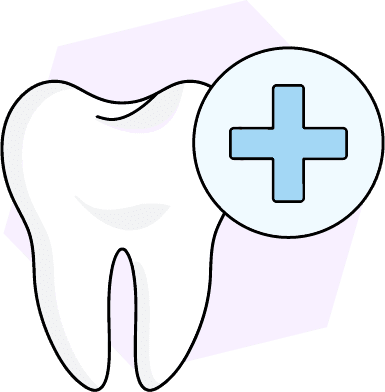Yes, Medicare covers medically necessary dental procedures, such as dental work that is part of another Medicare-covered surgery. However, Original Medicare does not cover routine dental care, such as oral checkups, cleanings, and fillings.
Beneficiaries who want this coverage can consider Medicare Advantage Plans instead. These types of plans often include dental benefits and vision and hearing services. Medicare beneficiaries can also enroll in a stand-alone dental healthcare plan that covers preventive dental benefits.
Learn more about how Medicare covers dental services and what you can do to find comprehensive dental care.
Table of Contents
- Dental Health Can Impact More Than Your Teeth
- Understanding Medicare Dental Insurance Coverage
- Dental Insurance for Medicare Advantage
- Stand-alone Dental Coverage or Medicare Advantage? Weigh Your Options
- Tips On Maximizing Dental Benefits
- Putting It All Together
- Frequently Asked Questions
- Additional Resources
Dental Health Can Impact More Than Your Teeth
Understanding the impact of dental health on overall well-being is crucial, particularly for individuals in the Medicare age group. The CDC reports that 2 out of 3 adults over 65 suffer from gum disease, which affects more than oral health.
Regular dental care does more than preserve your smile; it protects against conditions like diabetes, heart disease, and increased risk of stroke. As we explore the significance of dental health, remember its role in maintaining your general health.
Understanding Medicare Dental Insurance Coverage
Original Medicare only covers dental care when it is a medically necessary procedure related to a covered condition or service. That means the dental care must be needed to save your life or maintain your overall health. For example, surgery for a fractured jaw is covered under Medicare Part A’s hospital insurance benefits. If your surgery includes dental work as an important part of the procedure, Part A would cover that dental work.

Eligibility Criteria
Coverage for dental care services is not guaranteed, so beneficiaries should check with their doctor to ensure the procedure is medically necessary. Examples of when Medicare may cover dental care include:
- The dental work is an important part of treatment for a covered condition. For example, you may need to have an oral exam as part of your overall health assessment before getting an organ transplant.
- The dental work is an important part of ensuring other covered treatments succeed. For example, you may need to have a tooth pulled to treat an infection in your mouth before undergoing chemotherapy.
- The dental work is so complex that it must be done in a hospital. For example, you may have underlying health conditions that makes some dental procedures especially risky.
- The dental work is needed to address complications from other covered treatments. For example, you may need dental work to address complications from head and neck cancer treatment.
Medicare does not cover emergency dental care unrelated to another covered condition and also does not cover routine services such as root canals and cavity fillings. For example, if you crack a tooth and need it to be extracted, Medicare would not cover this service.
Dental Insurance for Medicare Advantage
Medicare Advantage, or Part C, is an option from private insurers that rolls Original Medicare (Parts A and B) into one plan, often adding extra benefits like dental care. These plans can be a good choice for those looking to cover more than just hospital and medical insurance, as they can include dental services such as teeth cleanings, exams, and X-rays. Some plans cover fillings, crowns, and dentures. However, dental coverage details can differ between Medicare Advantage plans. Look closely at each plan to ensure it fits your dental care needs.
If dental health is a big part of your healthcare plan, Medicare Advantage could be worth considering. Talking to a licensed agent or broker who knows the ins and outs can make a big difference in helping you navigate the options.
Stand-alone Dental Coverage or Medicare Advantage? Weigh Your Options

Outside of Medicare Advantage, there’s another choice: stand-alone dental insurance. Unlike health insurance, this insurance focuses solely on dental services. Stand-alone plans usually cover preventive care, such as cleanings and exams, along with basic procedures like fillings and extractions. They might also cover more extensive services, including crowns, bridges, and dentures. However, the specifics of each plan can vary greatly, so reviewing the details is crucial to ensure it fits your dental health needs.
Pros of Stand-alone Dental Plans
- Broader Dentist Selection: Offers flexibility in choosing your dentist.
- Specialized Coverage: Tailor your plan to your needs.
- Independent Coverage: Dental insurance remains unaffected by changes in health coverage.
Cons of Stand-alone Dental Plans
- Separate Premiums: Adds an extra cost on top of health insurance.
- Annual Limits: Caps on spending may restrict accessible care.
- Higher Out-of-Pocket Costs: Some plans may lead to increased personal spending on dental services.
Pros of Medicare Advantage Plans with Dental Benefits
- Convenience: Health and dental under one plan for simplicity.
- Cost-Efficiency: Adding dental benefits to Medicare Advantage can be more affordable than separate insurance.
- Extra Benefits: Some plans offer additional vision or hearing coverage.
Cons of Medicare Advantage Plans with Dental Benefits
- Limited Provider Networks: May restrict your choice of dentist to those within the network.
- Coverage Limits: Primarily covers basic services, with limited coverage for extensive work.
- Plan Variability: Not all plans include dental, and coverage varies widely.
Tips On Maximizing Dental Benefits

Maximizing dental benefits is crucial, especially as dental care can be expensive. Several strategies are worth considering for Medicare beneficiaries looking to make the most out of their options. These tips can help you get the dental care you need without overspending.
- Enroll in a Medicare Advantage Plan with Comprehensive Dental Benefits: Choose a plan that covers the dental services you anticipate needing. Review the plan’s coverage for preventative, basic, and major dental services to ensure it aligns with your needs.
- Seek Care from Dental Schools: Dental schools often provide services at a reduced cost as part of their student training programs. These services are supervised by licensed dentists, ensuring high-quality care.
- Use Clinics for Lower Income Populations: Many communities have clinics that offer dental services based on income. These can be an affordable option for preventive care and essential dental work.
- Enroll in Medicaid if Eligible: Some state Medicaid programs offer dental benefits, which can be a valuable resource for those who qualify, particularly in states with expansive dental coverage.
- Take Advantage of Preventive Services: Preventive care, such as cleanings and regular exams, is often covered and can prevent more costly treatments. Utilize these services to their fullest to maintain oral health and minimize future expenses.
Putting It All Together
In this guide, we have shown that options exist beyond Original Medicare’s limited dental coverage. Medicare Advantage Plans, for example, often include dental benefits. We also explored the advantages of choosing stand-alone dental plans and shared strategies for maximizing dental benefits, including enrolling in Medicare Advantage, utilizing dental schools, and qualifying for Medicaid. Remember, maintaining dental health is essential for overall well-being, particularly for those on Medicare.
